The State’s secret?
Tuesday, 28.06.2011.
19:18

The State’s secret? Why has this important data remained hidden for years from the public and why it has not been investigated so far? Why even the current Government does not want to allow confidentiality clearance from the Korac's committee findings about the role and responsibility of Secret Service and Ministry of Internal Affairs in the Prime Minister's assassination?Why the security cameras on the Government of Serbia building were not working? Why the judges from the IV Municipality Court released Dejan Milenkovic Bagzi from detention only four days earlier, after the first assassination attempt near Limes arena?Why the Saber Operation was terminated at the moment the background of assassination became loomed up? What were the roles of ambassadors and diplomats in the state of emergency ending? Why an investigation of the Special Operation Unit rebellion is important today, but was not important in all previous years? What Vojislav Seselj and Mira Markovic had known before they left the country after the assassination attempt near the Limes arena? To whom Milorad Ulemek Legija wrote letters asking for a support to overthrow Zoran Djindjic, a month before the assassination? Who inspired, incited and ordered the assassination of the Serbian Prime Minister?An opportunity to investigate a possible political background of the Premier’s assassination was missed the first time in 2003. A state of emergency was declared on the day of assassination, March 12th 2003, and Saber action commenced, wherein in less than 40 days, many murders, kidnapping, and criminal groups operations were solved while some of the men accused of killing the Serbian Prime minister were found. At the exact time the current Government declared the Saber action entered the most delicate phase in revealing the political background of the Premier’s assassination, the state of emergency was revoked, and further investigations were put on hold. In the past several years, certain representatives of the Zoran Djindjic Government have publicly stated that the foreign diplomats in Belgrade asked for the state of emergency revocation. The ambassadors of the U.S.A. and United Kingdom, who were at the time of the assassination in Belgrade, William Montgomery and Charles Crawford respectively, had left the functions before their mandates were over. The role of diplomats in Belgrade regarding the state of emergency revocation was never fully revealed. Charles Crawford, United Kingdom ambassador to Belgrade at the time of the assassination: As far as I know, the people in Serbia supported the action “Saber” and the arrests of a number of criminals and other dangerous persons. But, after a while, after several weeks, a moment comes when a state of emergency becomes not a sign of power but a sign of weakness. This is how European governments considered this issue. Why is the state of emergency lasting for so long? There was a sense that after some time, you have to get out of it and return to the normal procedures, because that’s what Europe was asking for. But I don’t think there was a case of someone lobbying for a particular reason, that would be absurd. William Montgomery, U.S.A. ambassador to Belgrade at the time of the assassination: Even human rights organizations, in the beginning quietly but later on very loudly, complained to the fact so many people got detained under some very difficult circumstances. There were questions about the treatment of the detained, their number etc. And it became louder and louder, I even think that some people from the government wanted to find ways to revoke the state of emergency. Vladimir Popovic, the Serbian Government's Communication Bureau Chief at the time of the assassination, at one of the briefings in the Government of Serbia during the state of emergency, had stated the investigation reached people close to Democratic Party of Serbia. He retold, in a 2005 Insider show, his conversation with Maurizio Massari, Head of the OSCE Mission in Serbia and Montenegro at the time, subsequent to the Government of Serbia statement. Vladimir Popovic, the Serbian Government's Communication Bureau Chief at the time of the assassination (a statement given to Insider in 2005): Immediately afterwards, there were stories like “What will happen to Kostunica? What will happen if the investigation reaches to Kostunica?” I said: ”Well, I don’t know what will happen. It will be as it ought to be”. “Well, no, what if it turns out he is involved too?” I said:”What will happen? The same as if would happen in your country”. “But, you know, we are a democratic state…but, you are still…Kostunica is the leading politician”. And that really annoyed me. Maurizio Massari shortly responded then with “no comment” regarding the statement by Vladimir Popovic. The state of emergency was revoked on April 22nd 2003, followed by slowish investigations and cessation of the “Saber” Operation. William Montgomery, U.S.A. ambassador to Belgrade at the time of the assassination: My point is simply, were there any solid evidence pointing out to someone else, chasing another person, I would encouraged them to do so, I would totally support that, if there was anything, any piece of paper showing this connection, or that anyone from the arrested ones gave confidential information on participation of any other person. Both the United States Government and I would support it fully. We would support an arrest of that person and disclosure of the complete truth and details. B92: In that moment, you didn’t have such information? William Montgomery, U.S.A. ambassador to Belgrade at the time of the assassination: No, I didn’t, but also, I didn’t have an active part- I didn’t come forward with “you have to revoke Saber”. I didn’t have that part. William Montgomery, U.S.A. ambassador to Belgrade left the function in January 2004, after the parliament elections. Today he lives in Croatia and he is a co-owner of the two companies in Serbia. Together with the former Milosevic’s Information Secretary, Goran Matic, he runs a consulting company, while with Gradimir Nalic, the former consultant to Vojislav Kostunica, he runs a security guard company “Stracon security”. For years, Montgomery refuses to be interviewed by Insider but he agreed to answer questions regarding his book, where he had described almost all important events. B92: In your book, you describe in details contacts among Legija, Djindjic and Cedomir Jovanovic, but I wasn’t able to find that you describe at all Legija’s contacts with Vojislav Kostunica’s office. We know there were such contacts, is it possible you were not aware of this fact? William Montgomery, U.S.A. ambassador to Belgrade at the time of the assassination: I’ve tried to be objective as possible, and to stick with things I was pretty sure about. I know there were accusations regarding this matter, but I don’t have personal knowledge about it and I think it would not be appropriate for me to write or make accusations I don’t know about. B92: There was a theory Kostunica and people from his surroundings are protected by some more influential force. Were you that force? William Montgomery, U.S.A. ambassador to Belgrade at the time of the assassination: No, let’s go back to the facts and evidences and normal criminal investigation. If your government, or your services, has any information powerful enough to accuse Kostunica or people associated with him for any crime, then they would have a total support of the international community, my own government and me to process it. But, the fact is they have never shown me a single piece of evidence in support of this allegation. B92: Djindic’a associates claim the foreign ambassadors influenced the revocation of state of emergency because the investigation came close to Democratic Party of Serbia. Charles Crawford, United Kingdom ambassador to Belgrade at the time of the assassination: That is totally ridiculous and untrue. There is no connection. It would be absurd. If you have evidence, arrest them, if not- don’t arrest them. But the connection you mentioned between the end of state of emergency and suspicion of some ambassadors, as far as I know, simply does not exist. That’s a pointless speculation. Charles Crawford, United Kingdom ambassador to Belgrade left the function before the cessation of his mandate in July 2003, several months after the assassination of the Serbian prime Minister. He was a friend to Zoran Djindjic, but he also thinks Djindjic was maintaining contact with those who later on murdered him. Such relationship towards the assassinated Serbian Premier is evident from the telegram the United Kingdom former ambassador sent to London a morning after the Premier’s assassination. This diplomatic note Crawford had published in his Internet diary a day after his interview with Insider was recorded. He published the dispatch due to, according to his text, “the idiotic insinuations in questions” asked by the Insider’ journalists. In the diplomatic dispatch of the former United Kingdom ambassador, among other things, this is stated: “In the end Djindjic probably was murdered by the very worst criminal elements whose links to him had never been explained. The Zemun drug dealers and Legija's Special Units had brazenly thrown their weight around Belgrade since Milosevic fell, known by the mass of Serbs to be ruthless killers yet surviving the downfall of Milosevic to re-emerge as some sort of shady allies with the Djindjic government. Djindjic of course had done deals with these people as Milosevic fell - one reason why there was so little bloodshed at the time, a fact we all acclaimed… These despicable but highly trained killers did not like Djindjic going back on his earlier undertakings” (http://charlescrawford.biz/blog/zoran-Djindjic-serbian-hero-european-friend). The former United Kingdom ambassador, who wrote this a day after the premier’s assassination, considers the assassination was not politically motivated. Charles Crawford, United Kingdom ambassador to Belgrade at the time of the assassination: I didn’t get an impression this was a politically motivated murder. It was more connected with going after drug dealers, war criminals, along with political questions. The criminal side of those that had happened in the former Yugoslavia with the collapse of communism, with Yugoslavia and furthermore, especially drug dealers, they were very dangerous men and I think Djindic wanted to stop them, and he was very resolute about putting organized crime into normal frames. My own instinct tells me this was the main reason, perhaps there were some people who wanted to gain profit out of it, but that’s what it is. One of the police generals who led the “Saber” action claims, however, the political background exists, but it could not have been done more because the state of emergency along with the action “Saber” ended. Boro Banjac, Chief of the UBPOK( 2003-2004) : Believe me, it could not have been done more. At the time of the action “Saber” a lot of things got done. It was a hard job to deal with the political background without solid, tangible evidence, well, I think we would not have done this job we were doing. We wouldn’t collected material evidence, we wouldn’t interrogate all those persons, we wouldn’t with those persons, I think all the conversations were short, clear, fast, with some persons we spoke for days in order to extract a true story. A lot of time passed, the political background of the assassination at that moment went up to the certain level, as much as we could do. I have to say also, for the public too, that public security never dealt with political criminal, never had and never was trained to deal with it. It is a completely different service which should have been involved and dealt with it. B92: Which service? Boro Banjac, Chief of the Administration for Fighting Organized Crime in 2003-2004: Well, the State Security Service, that is, Security Information Agency. However, unfortunately, things didn’t get any further, we only came into two gentlemen who had contacts with Legija and Dusan Spasojevic. B92: And so you had evidence about the contact? Boro Banjac, Chief of the Administration for Fighting Organized Crime in 2003-2004: Of course we had the evidence, based on the evidence we detained and made…and arrested. Due to their contacts with the Zemun gang, Aco Tomic, rade Bulatovic, Borislav Mikelic and Dragan Vujicic called Bega were detained. Two close associates of Vojislav Kostunica, Aco Tomic and Rade Bulatovic, after Democratic Party of Serbia became the ruling party in the country, had collected the damage from the state due to the detention but no evidence of guilt. From the petition for investigation: “They are suspected of becoming, in the second half of 2002 in Zemun, members of the conspiracy organized by late Spasojevic and Milorad Lukovic, by directly and in many instances making contacts with the conspiracy organizers, mutually exchanging actual political information and attitudes, where Lukovic insisted that the suspect Tomic regulates Special Operations Unit status, status and response of the so-called Hague indicted criminals in a case of their arrest, insisting that the suspect Tomic answers about the possible response of the special forces “Cobra” if he were to be arrested and sent to Hague. As a sign of gratitude the suspect Tomic got a present from the late Spasojevic, a cell phone Nokia with camera”. The Prosecutor Jovan Prijic brought charges against, among others, Aco Tomic, the former chief of military security and close associate of Vojislav Kostunica. The indictment included Borislav Mikelic, Prime Minister of Republic of Serbian Krajina. In the beginning of 2004, after the elections when it was certain Democratic Party of Serbia will form the government, the prosecutor dropped the charges against several individuals, among whom were Aco Tomic and Borislav Milkelic. Rade Bulatovic became a head of Security Information Agency, arrested during the Operation “Saber”. What has left totally unnoticed and insufficiently researched is the fact that, immediately before the Premier’s assassination, Milorad Ulemek in panic, wrote letters to the public and to certain politicians, asking for a support to overthrow the Djindjic’s government. Letters were sent to those who were in political conflict with the premier- Miroljub Labus, Slobodan Vuksanovic, Velimir Ilic. Interesting, though, is that a letter was also addressed to the U.S.A. ambassador, William Montgomery. William Montgomery, U.S.A. ambassador to Belgrade at the time of the assassination: When the police started the action “Saber” in order to arrest all criminals from the Zemin gang, they also searched for Legija and others. They went into his home and checked his personal computer. In there, they found several letter drafts and a letter addressed to me. B92: You did not receive the letter? William Montgomery, U.S.A. ambassador to Belgrade at the time of the assassination: No, that was just a letter draft, I didn’t receive anything from him. This is basically, what has happened. B92: Why was, according to your opinion, this latter addressed to you? William Montgomery, U.S.A. ambassador to Belgrade at the time of the assassination: I think that was one among many letters he meant to send, I think they believed the atmosphere in Serbia is so antagonistic towards the premier and others and that political powers are so divided they could get out of it without being accused, that even they could be presented as heroes. I don’t know what were they thinking about, but I think the political climate was overheated at that moment, with a lot of controversial questions and all were very emotional at all sides. Many extreme things were said. Even numerous politicians spoke the extreme. I think the atmosphere contributed to Legija’s feeling he can get out. A letter by Milorad Ulemek asking for a support to overthrow the Zoran Djindjic government was received by Velimir Ilic, a leader of New Serbia. Ilic spoke publicly for the first time for B92 on how he told Nebojsa Covic about the letter’s content, who at the time, a month before the premier’s assassination, was a member of the National Security Council. After the assassination and during the action “Saber”, it turned out Nebojsa Covic did not inform about the letter a person from the Djindjic’s government even though it was the time of preparation for a combat against Legija and members of the Zemun gang. Velimir Ilic, leader of new Serbia: Legija wrote me a letter, from the letter I don’t see Legija was preparing- this was shortly before the assassination- for the assassination. He would not write a letter if he attempted an assassination, he was a professional, he wouldn’t write such things… B92: And what did he say? Velimir Ilic, leader of new Serbia: Well, you see, he invited me to help him out to repeat again October 5th, to perform the action, he said-“ you were great, I didn’t want to obstruct, simply I was passive, but please if you want to be included, simply, to repeat something similar, because real changes never came, this what has come now is corrupted, in big trouble and so on, nothing will come out of Serbia…” he wrote this on the whole page, explained and asked me to let him know if I am interested to organize something like that. After a few days, the assassination took place, after a while. Just before that, Nebojsa Covic came to see me, in Cacak. Of course, as a vice president, he came with the whole suite and police and all that…We discussed some sports subject, basketball and so on…He asked me- “What are you doing, Veks, how are you”. I explained to him I got a letter from Legija, that his men brought it one night, I wasn’t at home, my wife was given the letter, they sat for a while, had a cup of coffee. Covic answered to me, in front of everybody, there were around 100 of us- “Don’t you, forget it, no problem, Legija is my man, if you have a problem just call me and we’ll solve everything”. B92: Did you sense a coup d’etat, assassination, an attempt of putsch? Velimir Ilic, leader of New Serbia: Well listen, the government vice president told me it’s was not a big deal, that it’s his man, and if I need something to just call him, I calculated hence all is OK. A lot of people from the police were there, they protected Covic as a government vice president hence they were with him. Nebojsa Covic had not inform the government of Serbia that Milorad Ulemek Legija, whose arrest was being prepared, sent letters to certain politicians. When it became known Covic had not inform National Security Council, where he was a member, nor the premier Djindjic about the letter Velimir Ilic received, albeit the preparation of arrest of Milorad Ulemek Legija, he explained he had done so since he considered it unimportant. In the meantime, a witness-collaborator Dejan Milenkovic Bagzi accused Covic at the trial for the premier’s assassination, claiming both Covic and Seselj knew about the assassination preparation. Bagzi, however, in his testimony, referred to Dusan Spasojevic, killed in 2003 during an arrest attempt, as a main source for this information. Covic denied this claim immediately. He acknowledged though knowing Milorad Ulemek from the operations in the southern Serbia. Covic refused an interview with Insider but he did answer some questions regarding his silence about the letter Velimir Ilic got from Milorad Ulemek a month before the assassination, in Insider live show in 2006. Insider live show, in 2006: B92: In February, Ilic told you about the letter, if I got it right. Did he tell you about the content of the letter too, or just… Nebojsa Covic, government vice president and member of the National Security Council at the time of the assassination: he did mention a letter from Ulemek, and I said I’m not interested in it. I never heard about the letter content nor I ever seen the letter, here, tonight is the first time I laid my eyes on it. You are telling me now, it was shared in April 2003, at the government briefing. I believe it was, but I just wasn’t interested B92: So, you have not seen the letter content then? Nebojsa Covic, government vice president and member of the National Security Council at the time of the assassination: No, I haven’t seen the letter content. Then… B92: But, how then did you conclude it was rubbish? That you were not interested? Nebojsa Covic, government vice president and member of the National Security Council at the time of the assassination: That everything Velja tells about the letter, what else could it be? What do you think? What, like it is a creative letter? B92: Wait a while, the letter is written by a man whose arrest the government is preparing, at that moment…. Nebojsa Covic, government vice president and member of the National Security Council at the time of the assassination: The government was preparing to arrest him, but that was obviously known to very few people in the government. B92: You did not know? Nebojsa Covic, government vice president and member of the National Security Council at the time of the assassination: Because that man…no. B92: You said yourself that you discussed it, on the government meetings. Nebojsa Covic, government vice president and member of the National Security Council at the time of the assassination: No, I didn’t know the arrest was preparing. I did everything publicly, and you know what, I do have a complete documentation. You have one part of the documentation, here is the other part. The exact dates and letter, to whom they were addressed, both to the minister and prime minister and the answers received, and Security Information Agency at the time and to the rest of judicial offices… B92: Well, mister. Covic, I am interested in simply, it is not logical to me… Nebojsa Covic, government vice president and member of the National Security Council at the time of the assassination: That letter could not be anything but rubbish. B92: So, You still think today it’s rubbish? Nebojsa Covic, government vice president and member of the National Security Council at the time of the assassination: Yes. B92: You still today think it’s rubbish? Nebojsa Covic, government vice president and member of the National Security Council at the time of the assassination: Isn’t that rubbish, what do you think? Disgusting rubbish, isn’t it? B92: Was it also rubbish when Legija publicly threaten… Nebojsa Covic, government vice president and member of the National Security Council at the time of the assassination: And what do you me to answer, here, I will, just ask… B92: No, it’s not clear to me how could you…here, this is what I’m interested in, if you would let me ask…So, it’s not logical, at that time you were a vice president of the government, you knew what was going on, you agreed upon, you even said the atmosphere was even worse than we reported, in that atmosphere… Nebojsa Covic, government vice president and member of the National Security Council at the time of the assassination: I never said it was worse, I said it was a difficult atmosphere. We were under attack constantly. You should start from what I’ve been doing. My job was… B92: here, I’m asking you, what did you do and why did you conclude that something is rubbish without even knowing the content? Nebojsa Covic, government vice president and member of the National Security Council at the time of the assassination: I was working very hard in the south of Serbia and in Kosovo and Metohija. I was in Belgrade for one or tow days, and believe me, I wasn’t reading any letters, not by Ulemek or anybody else’s. I wasn’t interested in him at all…I’ve seen him only officially, in the government, and I was…I could not chose him over someone else, he was a police colonel I came into in the south of Serbia… B92: But you are responsible because this was not important to you, how could it not be important? Nebojsa Covic, government vice president and member of the National Security Council at the time of the assassination: So, you think I should be held responsible? Good, here, I am responsible. Finally, you brought me into a position to have… B92: Well, you didn’t consider… Nebojsa Covic, government vice president and member of the National Security Council at the time of the assassination: No, I didn’t consider...that was non important, do you understand, you know what Velja Ilic was saying about the government and what were the quarrels alike around the government… B92: We know all about it, and he tells you Ulemek sent him a letter, how come you were not interested, at that particular moment? Nebojsa Covic, government vice president and member of the National Security Council at the time of the assassination: I am not interested at all, not in Ulemek not in Ilic. B92: Good, thank you. Ulemek sent a letter asking for a support to overthrow the Zoran Djindjic’s government just a month before the assassination, to the politicians who were obviously in conflict with Djindjic. The letter received by Velimir Ilic is of the following content: Extracts from the Ulemek’s letter to the politicians a month before the premiers assassination: You have an opportunity to fulfill a historical role to do the right thing again for the people and all of us, but this time with the right people, with those who will fulfill at least a minimum of people’s interest without fairy tale stories about the brighter future and future that appears as awaiting for us when we are literally, gone. I am ready to help as much as I can that this country finally gets, in a peaceful, real democratic way what it really deserves- a government who will not care only about its own interests and interests of the members only, but about interest of all of us, our economic survival and bare minimum of national dignity and respect for our bright history. Otherwise, we will become a part of general worldly drab, slaves of the new world order, not because someone mighty from the outside really wanted but because we didn’t have a government worthy a healthy and honest Serbian peasant. I believe there is enough intelligence and brains power in this country which could return the ancient brilliance to those who, based on the cosmic justice, it really belongs It remains unknown even today if Ulemek received a political support for his inttentions. No one investigated in full the reactions of Djindjic’s political opponents from whom had Ulemek, based on the facts, asked a support. At the time he was writing the letters to politicians, Ulemek was already aware about the ring being tightened around the Zemun gang. The Anti-Organized Crime law, which introduces an institution of witness- collaborator was ratified, Special Prosecutor was elected, it was a matter of days when Ljubisa Buha Cume would sign a statement revealing all criminal activities of the Zemin gang and members of Special Operations Unit. The cooperation between the state and Ljubisa Buha Cume was named “Witness action. Ljubisa Buha Cume signed the statement on March 11th, in Slovakia, where he had evacuated to avoid Legija’s and the Zemun gang revenge. The Special Prosecutor returned to the country, with the Buha’s statement, on March 11th, nighttime. On March 12th, in 12:55 in front of the entrance to the Government of Serbia building, the Serbian Prime minister was assassinated. Every year on March 12th, the questions arise all over again: why the assassination was not prevented, why the members of the organized criminal group who committed the murder were not arrested earlier? Boro Banjac, Chief of UBPOK ( 2003-2004) : You do remember that the Special prosecutor and inspectors who interviewed Cume acquired for the first time an official statement from him, and without official statement, how could we file for a procedure? A deal was already made because there was a trial for Miskovic’s kidnapping, we had made a plan to blow them up--arrest them after the trial for Miskovic’s kidnapping since they were already appearing in front of the court for that matter and then we planned two days after the Djindjics assassination well to B92: That is, on March 14th? Boro Banjac, Chief of UBPOK ( 2003-2004) : Thats right, well, to arrest them and to follow through. A deal was made with the Special prosecutor and with us, the people engaged in this action, that this was the opportunity to arrest them because that is when we could find all of them at one place. However, well, it is obvious now they were in a hurry after the Limes incident, that is the attempt, Bagzi’s unfortunate release from detention. Then it was clear to us, based on base stations and specials they used, then we got it, but it was wasted, it’s not worthed now that we know Bagzi was released, released on 5 o’clock in the afternoon, Bagzi, the traveling salesman, released in 5 o;clock in the afternoon. Still today, it is unknown why the premier, after he escaped an attempted murder try near the Limes arena was not properly guarded, and what were the intelligence information about his life safety. In Insider show from 2008, we discovered that, some time after the assassination of Zoran Djindjic, the law on Security Information Agency changed. Secret Service, until the end of 2002 had a responsibility to assess the Serbian premier’s safety. This intelligence part, since December 2002, became a responsibility of Serbian Ministry of Internal Affairs. However, the fact is that neither of them, even after several assassination attempts, dealt with the premier’s life safety assessment. The responsibility of the Secret Service and Serbian Ministry of Internal Affairs was never much publicly questioned with an exception of Committee for investigation of omissions in the premiere’s security. The president of this committee was Zarko Korac. Zarko Korac, government vice president at the time of the assination, then later on president of Committee for investigation of omissions in the premieres security (statement from 2006) : I am very sorry that Prosecution did not file charges, based on our report, against some people who deserved it. Am I clear enough? So, I don’t think they did it on purpose, I do not know that. I believe that the majority did not make omissions on purpose, in securing Zoran Djindjic, but I also think prosecutor should file criminal charges. These should also have been processes against some people who did not do their job. An issue hidden from the public was revealed in Insider 3 years ago. Namely, due to coordination and lingering with the authority transfer from Security Information Agency to Serbian Ministry of Internal Affairs, a gap of several months was made, all until February 2003, wherein in fact, no one was in charge for the state officials security. The main coordinator in the authority transfer from Security Information Agency to Ministry of Internal Affairs, Zlatko Radnic, had left the police, attributable according to our knowledge, to the conflict with Dusan Mihajlovic, the then Chief of Police, due to, as came out later, lingering of duty in security of the state officials. The Insider crew has asked from the government a complete documentation regarding the work of the Korac’s committee. But, the government delivered a report without attachments, that is, documents of the state offices and records of conversations that the committee had regarding the omissions in the premier’s security. The rest of the documents, we were told, are classified under “state secret”, and could be revoked only by the government itself. Due to acting against Freedom of Information Law, Insider sued the Government of Serbia. The suit was rejected. Based on Insider’s later appeal, the procedure is now in front of the Constitutional Court. Boro Banjac,Chief of UBPOK ( 2003-2004) : I ask a question, I don’t pose a question of the political background anymore, I ask now: who is a political partner to mister Legija, as called once by Mihajlovic, who is a political partner to mister Legija and the Zemun gang? B92: Do you have any assumptions? Boro Banjac, Chief of UBPOK ( 2003-2004) : Well, conclude for yourself. The investigation did not reach the Zemun gang and Milorad Ulemeks political partner.Furthermore, it remains unknown how Ulemek was hiding, who offered a logistic support to him and why he decided to surrender. After the elections called several months after the assassination of the Serbian prime minister, the ruling party became Democratic Party of Serbia. The new chief of police immediately announced new investigation on the premier’s assassination, the Chief of the Public Security Police Department claimed the charges are weak, and Zoran Stojkovic, Minister of Justice announced revocation of the Special court, where trial against the premier’s assassins had already begun. Mile Novakovic, chief of Criminal Police Department at the time of “Saber” Operation: Jocic, in a couple of months only, replaced 400 officers in Ministry of Internal Affairs. So, everything that was until that time…Were they good or not, not all 400 were good for sure, but you know, when you replace 400 people and post new 400 people out of whom one parts is not…it’s far from the truth they all came based on some political grounds, or fraternal, friendly, kin, I don’t know which one, and so, that’s how things functioned. And you know, how much they cared about the Zemun gang and search for these people. In the meantime, when Democratic Party of Serbia took over the power in the country, in 2004, the prime suspect for the premier’s assassination, Milorad Ulemek Legija, surrendered. Boro Banjac, Chief of UBPOK ( 2003-2004) : I got a call from the chief of criminal police department and said: “Bora, send me two of your inspectors, Legija is being taken in Secretariat of Internal Affairs in Belgrade, to do some checking, identification, photographing and the formal conversation which needs to be done with him”. And so I sent two inspectors, and I waited to hear from them, to let me know what happened, how it was. And, around 2 o’clock in the morning, they called me and said: “Chief, Legija isn’t here, Legija is in Ministry of Internal Affairs”. So, I said: “Good”. Then I called the chief of the criminal police, to ask him what was going on. He said:” Well, I don’t know, he’s here”, he said “this and that”. And that morning, normally, I didn’t hear of, that is, I found out from Guri that Jocic came from Zlatibor, and Rade came too. I didn't even know that a minister and chief of state security, that is Security Information Agency had to be there, that they had to formally interview, at that time, the most wanted criminal in Europe. My biggest disappointment came at the first collegium, immediately after Legija’s surrender, in Ministry of Internal Affairs, where mister Jocic and Milosevic had with delight praised themselves and the new government, because Legija decided to surrender to them. I was in a state of shock, and I simply couldn’t believe the things they had said holding such responsible duty, they had bragged: “Here, thanks to us, he has a trust in this government and that’s why he surrendered”. According to law, Milorad Ulemek had to be identified by the police and after that he should have been taken to detention in county court, that is Central Prison. According to the same law, a contact with Ulemek could be approved only by the president of the Court Council. Nevertheless, the president of the court council at the time, Marko Kljajevic was not even informed about the Ulemek’s surrender, hence he could not have approved his conveyance into the Minister’s cabinet. B92: Why it was not investigated where had Legija been hiding? That is, first tell me if there was an investigation regarding this matter? Boro Banjac, Chief of UBPOK ( 2003-2004) : No, nothing was done, nothing was investigated, and no one spoke with Legija besides them. Remember, hey were publicly declaring, both Stojkovic and Jocic, that it didn’t really matter where Legija had been until then. And who can investigate it, how could we investigate it? B92: Well, then. You are operational, he’s a minister, I suppose you don’t have to ask for a permission to investigate where Legija was hiding? Boro Banjac, Chief of UBPOK ( 2003-2004) : Unfortunately, the permission was necessary/ I should had to/ but I realized that an attempt, that is, if I had insisted, that could be, well, maybe, very bad for myself. Already in 2004, Insider discovered that Ulemek, instead of ending in jail when he surrendered, ended, against the law, in the cabinet of the minister of internal affair. Insider has asked Jocic, more than ten times, to verify the assumption that Ulemek before he was taken to county prison, had spent several hours in conversation with the chief of police and director of Security Information Agency. Jocic and Bulatovic persistently ignored the question while the first official confirmation of the information we received from the then commander of Jandarmery, Goran Radosavljevic Guri. Under pressure due to the official confirmation, the police officials have tried to explain everything they had been denying until then. The Minister declared there is an official note about the conversation with Ulemek. Thanks to Insider’s insistence, the official note, after a few months, became available to the public. Immediately, doubts arouse pointing out the note was written afterwards, under the public pressure. In 2006, Insider revealed that the investigation on Bulatovic and Jocic was revoked by the order from the top, and that there is an official note regarding it. This information was confirmed publicly, a couple of months ago, by the then prosecutor Zoran Jakovljevic, who had dealt with the case. Ulemek court appearance was considerably used in pre-election presidential campaign in 2004. Ulemek had accused himself of drug dealing at the time of Zoran Djindjic government, and this was used in the presidential campaign by Serbian radical Party and Democratic Party of Serbia as an allegation that the Djindjic's government was also involved in the drug business. Boro Banjac, Chief of UBPOK ( 2003-2004) : Considering he had represented himself as a hero, I wonder why he had not have the courage to say the whole truth about it. B92: You think he has no courage? Boro Banjac Chief of UBPOK ( 2003-2004) : I think it would mean a lot to all of us, to finally find out who was his political partner at the time of Djindjic assassination, that is, immediately before the assassination. Who did he talked to and made a plan from hell. B92: You firmly believe he had made such a plan from hell? Boro Banjac, Chief of UBPOK ( 2003-2004) : Saber Operation had led to the direct suspects for the premier’s assassination, who were, by the verdict of Special Court in May 2007, convicted to maximum prison terms. Nevertheless, the procedure did not reveal the political background of the assassination. At the time of “Saber Operation, roles of certain political players were investigated regarding the assassination of the Serbian prime minister: Vojislav Seselj, Borislav Mikelic as well as close associates of Vojislav Kostunica- Aco Tomic and Rade Bulatovic. None of the investigations though got a court epilogue. Investigation which would reveal how it came that the Serbian prime minister was murdered was not performed until today. Special Operations Unit rebellion in November 2001 only in this present year became a case in pre-criminal procedure. Special prosecutor, Miljko Radisavljevic has confirmed what Insider already had emitted in 2004: the rebellion by Special Operations Unit was a prelude to the assassination of the Serbian prime minister. A court process is announced against Milorad Ulemek, Borislav Mikelic but also Milorad Bracanovic and also a preliminary hearing of Vojislav Kostunica as a witness. It still remain unknown who, if at all, supported the members of Special Operations Unit to come out on the streets under full battle array. The convicted members of the Zemun gang claimed Spasojevic and Ulemek communicated with Tomic at the time of the rebellion. Sasa Pejakovic, a bodyguard to Milorad Ulemek, testified in the court investigation that in November 2001, during the rebellion, he overheard Ulemek and Spasojevic conversation after their meeting with Aca Tomic. Allegedly, one of them told the other one: “We will not tell Seselj we had made a contact with Kostunica, let’s see first what Seselj thinks about it”. According to the testimony of a witness-collaborator Zoran Vukojevic, during the rebellion, Dusan Spasojevic had said: “We are not stopping now, until Kostunica says so”. At that time, Vojislav Kostunica then the president of Socialist Republic of Yugoslavia held a press conference about the rebellion. After the announcement of preliminary hearing, where he would be called in like any other ordinary citizen to tell everything he knows about the rebellion, Kostunica held special press conference and claimed a chase started against himself and his party, announcing he will not appear in court if called. During the rebellion in November 2001, Legija sent a letter to premier Djindjic: “If you want this to end peacefully, come in Kula (signed) ‘Beret”. This represents one of the crucial evidence Special Operations Unit was ready to use weapons. Special Operations Unit requests were all political: replacement of the chief of police and top officials, but also rectification of law on cooperation with Hague tribunal. This law was also the main request that Democratic Party of Serbia and Kostunica had demanded from the government. Zoran Djindjic government, incapable to confront the armed rebellion, accepted a compromise and replaced Goran Petrovic from the position of chief of State Security. Instead, Andreja Savic got appointed while his deputy became a close associate of Milorad Ulemek- Milorad Bracanovic. This was very important for Special Operations Unit, confirmed by a witness-collaborator Zoran Vukojevic, who was killed in 2006. This murder case was never solved. From Zoran Vukojevic testimony during the trial for Djindjic’s assassination: Zoran Vukojevic, witness-collaborator in the trial for premier Djindjic's assassination: They wanted to replace Mihajlovic and chief of State Security. They appointed Bracanovic, that request was fulfilled, and Legija assessed in that moment, that, as he said, they have shown their strength and that was enough for the moment. They fulfilled all of their goals and there was no need to go any further. Who is responsible for a vacuum created during the authority transfer from the Secret Service to Serbian Ministry of Internal Affairs, wherein no one was responsible, until February 2003, for protection service of the state officials, especially the Prime Minister Zoran Djindjic?
The State’s secret?
Why has this important data remained hidden for years from the public and why it has not been investigated so far? Why even the current Government does not want to allow confidentiality clearance from the Korać's committee findings about the role and responsibility of Secret Service and Ministry of Internal Affairs in the Prime Minister's assassination?Why the security cameras on the Government of Serbia building were not working? Why the judges from the IV Municipality Court released Dejan Milenković Bagzi from detention only four days earlier, after the first assassination attempt near Limes arena?Why the Saber Operation was terminated at the moment the background of assassination became loomed up? What were the roles of ambassadors and diplomats in the state of emergency ending? Why an investigation of the Special Operation Unit rebellion is important today, but was not important in all previous years? What Vojislav Šešelj and Mira Marković had known before they left the country after the assassination attempt near the Limes arena? To whom Milorad Ulemek Legija wrote letters asking for a support to overthrow Zoran Đinđić, a month before the assassination? Who inspired, incited and ordered the assassination of the Serbian Prime Minister?An opportunity to investigate a possible political background of the Premier’s assassination was missed the first time in 2003. A state of emergency was declared on the day of assassination, March 12th 2003, and Saber action commenced, wherein in less than 40 days, many murders, kidnapping, and criminal groups operations were solved while some of the men accused of killing the Serbian Prime minister were found. At the exact time the current Government declared the Saber action entered the most delicate phase in revealing the political background of the Premier’s assassination, the state of emergency was revoked, and further investigations were put on hold.In the past several years, certain representatives of the Zoran Đinđić Government have publicly stated that the foreign diplomats in Belgrade asked for the state of emergency revocation. The ambassadors of the U.S.A. and United Kingdom, who were at the time of the assassination in Belgrade, William Montgomery and Charles Crawford respectively, had left the functions before their mandates were over. The role of diplomats in Belgrade regarding the state of emergency revocation was never fully revealed.
Charles Crawford, United Kingdom ambassador to Belgrade at the time of the assassination: As far as I know, the people in Serbia supported the action “Saber” and the arrests of a number of criminals and other dangerous persons. But, after a while, after several weeks, a moment comes when a state of emergency becomes not a sign of power but a sign of weakness. This is how European governments considered this issue. Why is the state of emergency lasting for so long? There was a sense that after some time, you have to get out of it and return to the normal procedures, because that’s what Europe was asking for. But I don’t think there was a case of someone lobbying for a particular reason, that would be absurd.
William Montgomery, U.S.A. ambassador to Belgrade at the time of the assassination: Even human rights organizations, in the beginning quietly but later on very loudly, complained to the fact so many people got detained under some very difficult circumstances. There were questions about the treatment of the detained, their number etc. And it became louder and louder, I even think that some people from the government wanted to find ways to revoke the state of emergency.
Vladimir Popović, the Serbian Government's Communication Bureau Chief at the time of the assassination, at one of the briefings in the Government of Serbia during the state of emergency, had stated the investigation reached people close to Democratic Party of Serbia. He retold, in a 2005 Insider show, his conversation with Maurizio Massari, Head of the OSCE Mission in Serbia and Montenegro at the time, subsequent to the Government of Serbia statement.
Vladimir Popović, the Serbian Government's Communication Bureau Chief at the time of the assassination (a statement given to Insider in 2005): Immediately afterwards, there were stories like “What will happen to Koštunica? What will happen if the investigation reaches to Koštunica?” I said: ”Well, I don’t know what will happen. It will be as it ought to be”. “Well, no, what if it turns out he is involved too?” I said:”What will happen? The same as if would happen in your country”. “But, you know, we are a democratic state…but, you are still…Koštunica is the leading politician”. And that really annoyed me.
Maurizio Massari shortly responded then with “no comment” regarding the statement by Vladimir Popović.
The state of emergency was revoked on April 22nd 2003, followed by slowish investigations and cessation of the “Saber” Operation.
William Montgomery, U.S.A. ambassador to Belgrade at the time of the assassination: My point is simply, were there any solid evidence pointing out to someone else, chasing another person, I would encouraged them to do so, I would totally support that, if there was anything, any piece of paper showing this connection, or that anyone from the arrested ones gave confidential information on participation of any other person. Both the United States Government and I would support it fully. We would support an arrest of that person and disclosure of the complete truth and details.
B92: In that moment, you didn’t have such information?
William Montgomery, U.S.A. ambassador to Belgrade at the time of the assassination: No, I didn’t, but also, I didn’t have an active part- I didn’t come forward with “you have to revoke Saber”. I didn’t have that part.
William Montgomery, U.S.A. ambassador to Belgrade left the function in January 2004, after the parliament elections. Today he lives in Croatia and he is a co-owner of the two companies in Serbia. Together with the former Milošević’s Information Secretary, Goran Matić, he runs a consulting company, while with Gradimir Nalić, the former consultant to Vojislav Koštunica, he runs a security guard company “Stracon security”. For years, Montgomery refuses to be interviewed by Insider but he agreed to answer questions regarding his book, where he had described almost all important events.
B92: In your book, you describe in details contacts among Legija, Đinđić and Čedomir Jovanović, but I wasn’t able to find that you describe at all Legija’s contacts with Vojislav Koštunica’s office. We know there were such contacts, is it possible you were not aware of this fact?
William Montgomery, U.S.A. ambassador to Belgrade at the time of the assassination: I’ve tried to be objective as possible, and to stick with things I was pretty sure about. I know there were accusations regarding this matter, but I don’t have personal knowledge about it and I think it would not be appropriate for me to write or make accusations I don’t know about.
B92: There was a theory Koštunica and people from his surroundings are protected by some more influential force. Were you that force?
William Montgomery, U.S.A. ambassador to Belgrade at the time of the assassination: No, let’s go back to the facts and evidences and normal criminal investigation. If your government, or your services, has any information powerful enough to accuse Koštunica or people associated with him for any crime, then they would have a total support of the international community, my own government and me to process it. But, the fact is they have never shown me a single piece of evidence in support of this allegation.
B92: Đindić’a associates claim the foreign ambassadors influenced the revocation of state of emergency because the investigation came close to Democratic Party of Serbia.
Charles Crawford, United Kingdom ambassador to Belgrade at the time of the assassination: That is totally ridiculous and untrue. There is no connection. It would be absurd. If you have evidence, arrest them, if not- don’t arrest them. But the connection you mentioned between the end of state of emergency and suspicion of some ambassadors, as far as I know, simply does not exist. That’s a pointless speculation.
Charles Crawford, United Kingdom ambassador to Belgrade left the function before the cessation of his mandate in July 2003, several months after the assassination of the Serbian prime Minister. He was a friend to Zoran Đinđić, but he also thinks Đinđić was maintaining contact with those who later on murdered him. Such relationship towards the assassinated Serbian Premier is evident from the telegram the United Kingdom former ambassador sent to London a morning after the Premier’s assassination. This diplomatic note Crawford had published in his Internet diary a day after his interview with Insider was recorded. He published the dispatch due to, according to his text, “the idiotic insinuations in questions” asked by the Insider’ journalists.
In the diplomatic dispatch of the former United Kingdom ambassador, among other things, this is stated:
“In the end Đinđić probably was murdered by the very worst criminal elements whose links to him had never been explained. The Zemun drug dealers and Legija's Special Units had brazenly thrown their weight around Belgrade since Milošević fell, known by the mass of Serbs to be ruthless killers yet surviving the downfall of Milošević to re-emerge as some sort of shady allies with the Đinđić government.
Đinđić of course had done deals with these people as Milošević fell - one reason why there was so little bloodshed at the time, a fact we all acclaimed…
These despicable but highly trained killers did not like Đinđić going back on his earlier undertakings” (http://charlescrawford.biz/blog/zoran-Đinđić-serbian-hero-european-friend).
The former United Kingdom ambassador, who wrote this a day after the premier’s assassination, considers the assassination was not politically motivated.
Charles Crawford, United Kingdom ambassador to Belgrade at the time of the assassination: I didn’t get an impression this was a politically motivated murder. It was more connected with going after drug dealers, war criminals, along with political questions. The criminal side of those that had happened in the former Yugoslavia with the collapse of communism, with Yugoslavia and furthermore, especially drug dealers, they were very dangerous men and I think Đindić wanted to stop them, and he was very resolute about putting organized crime into normal frames. My own instinct tells me this was the main reason, perhaps there were some people who wanted to gain profit out of it, but that’s what it is.
One of the police generals who led the “Saber” action claims, however, the political background exists, but it could not have been done more because the state of emergency along with the action “Saber” ended.
Boro Banjac, Chief of the UBPOK( 2003-2004) : Believe me, it could not have been done more. At the time of the action “Saber” a lot of things got done. It was a hard job to deal with the political background without solid, tangible evidence, well, I think we would not have done this job we were doing. We wouldn’t collected material evidence, we wouldn’t interrogate all those persons, we wouldn’t with those persons, I think all the conversations were short, clear, fast, with some persons we spoke for days in order to extract a true story. A lot of time passed, the political background of the assassination at that moment went up to the certain level, as much as we could do. I have to say also, for the public too, that public security never dealt with political criminal, never had and never was trained to deal with it. It is a completely different service which should have been involved and dealt with it.
B92: Which service?
Boro Banjac, Chief of the Administration for Fighting Organized Crime in 2003-2004: Well, the State Security Service, that is, Security Information Agency. However, unfortunately, things didn’t get any further, we only came into two gentlemen who had contacts with Legija and Dušan Spasojević.
B92: And so you had evidence about the contact?
Boro Banjac, Chief of the Administration for Fighting Organized Crime in 2003-2004: Of course we had the evidence, based on the evidence we detained and made…and arrested.
Due to their contacts with the Zemun gang, Aco Tomić, rade Bulatović, Borislav Mikelić and Dragan Vujičić called Bega were detained. Two close associates of Vojislav Koštunica, Aco Tomić and Rade Bulatović, after Democratic Party of Serbia became the ruling party in the country, had collected the damage from the state due to the detention but no evidence of guilt.
From the petition for investigation:
“They are suspected of becoming, in the second half of 2002 in Zemun, members of the conspiracy organized by late Spasojević and Milorad Luković, by directly and in many instances making contacts with the conspiracy organizers, mutually exchanging actual political information and attitudes, where Luković insisted that the suspect Tomić regulates Special Operations Unit status, status and response of the so-called Hague indicted criminals in a case of their arrest, insisting that the suspect Tomić answers about the possible response of the special forces “Cobra” if he were to be arrested and sent to Hague. As a sign of gratitude the suspect Tomić got a present from the late Spasojević, a cell phone Nokia with camera”.
The Prosecutor Jovan Prijić brought charges against, among others, Aco Tomić, the former chief of military security and close associate of Vojislav Koštunica. The indictment included Borislav Mikelić, Prime Minister of Republic of Serbian Krajina. In the beginning of 2004, after the elections when it was certain Democratic Party of Serbia will form the government, the prosecutor dropped the charges against several individuals, among whom were Aco Tomić and Borislav Milkelic. Rade Bulatović became a head of Security Information Agency, arrested during the Operation “Saber”.
What has left totally unnoticed and insufficiently researched is the fact that, immediately before the Premier’s assassination, Milorad Ulemek in panic, wrote letters to the public and to certain politicians, asking for a support to overthrow the Đinđić’s government. Letters were sent to those who were in political conflict with the premier- Miroljub Labus, Slobodan Vuksanović, Velimir Ilić. Interesting, though, is that a letter was also addressed to the U.S.A. ambassador, William Montgomery.
William Montgomery, U.S.A. ambassador to Belgrade at the time of the assassination: When the police started the action “Saber” in order to arrest all criminals from the Zemin gang, they also searched for Legija and others. They went into his home and checked his personal computer. In there, they found several letter drafts and a letter addressed to me.
B92: You did not receive the letter?
William Montgomery, U.S.A. ambassador to Belgrade at the time of the assassination: No, that was just a letter draft, I didn’t receive anything from him. This is basically, what has happened.
B92: Why was, according to your opinion, this latter addressed to you?
William Montgomery, U.S.A. ambassador to Belgrade at the time of the assassination: I think that was one among many letters he meant to send, I think they believed the atmosphere in Serbia is so antagonistic towards the premier and others and that political powers are so divided they could get out of it without being accused, that even they could be presented as heroes. I don’t know what were they thinking about, but I think the political climate was overheated at that moment, with a lot of controversial questions and all were very emotional at all sides. Many extreme things were said. Even numerous politicians spoke the extreme. I think the atmosphere contributed to Legija’s feeling he can get out.
A letter by Milorad Ulemek asking for a support to overthrow the Zoran Đinđić government was received by Velimir Ilić, a leader of New Serbia. Ilić spoke publicly for the first time for B92 on how he told Nebojsa Čović about the letter’s content, who at the time, a month before the premier’s assassination, was a member of the National Security Council. After the assassination and during the action “Saber”, it turned out Nebojša Čović did not inform about the letter a person from the Đinđić’s government even though it was the time of preparation for a combat against Legija and members of the Zemun gang.
Velimir Ilić, leader of new Serbia: Legija wrote me a letter, from the letter I don’t see Legija was preparing- this was shortly before the assassination- for the assassination. He would not write a letter if he attempted an assassination, he was a professional, he wouldn’t write such things…
B92: And what did he say?
Velimir Ilić, leader of new Serbia: Well, you see, he invited me to help him out to repeat again October 5th, to perform the action, he said-“ you were great, I didn’t want to obstruct, simply I was passive, but please if you want to be included, simply, to repeat something similar, because real changes never came, this what has come now is corrupted, in big trouble and so on, nothing will come out of Serbia…” he wrote this on the whole page, explained and asked me to let him know if I am interested to organize something like that.
After a few days, the assassination took place, after a while. Just before that, Nebojša Čović came to see me, in Čačak. Of course, as a vice president, he came with the whole suite and police and all that…We discussed some sports subject, basketball and so on…He asked me- “What are you doing, Veks, how are you”. I explained to him I got a letter from Legija, that his men brought it one night, I wasn’t at home, my wife was given the letter, they sat for a while, had a cup of coffee. Čović answered to me, in front of everybody, there were around 100 of us- “Don’t you, forget it, no problem, Legija is my man, if you have a problem just call me and we’ll solve everything”.
B92: Did you sense a coup d’etat, assassination, an attempt of putsch?
Velimir Ilić, leader of New Serbia: Well listen, the government vice president told me it’s was not a big deal, that it’s his man, and if I need something to just call him, I calculated hence all is OK. A lot of people from the police were there, they protected Čović as a government vice president hence they were with him.
Nebojša Čović had not inform the government of Serbia that Milorad Ulemek Legija, whose arrest was being prepared, sent letters to certain politicians. When it became known Čović had not inform National Security Council, where he was a member, nor the premier Đinđić about the letter Velimir Ilić received, albeit the preparation of arrest of Milorad Ulemek Legija, he explained he had done so since he considered it unimportant. In the meantime, a witness-collaborator Dejan Milenković Bagzi accused Čović at the trial for the premier’s assassination, claiming both Čović and Šešelj knew about the assassination preparation. Bagzi, however, in his testimony, referred to Dušan Spasojević, killed in 2003 during an arrest attempt, as a main source for this information. Čović denied this claim immediately. He acknowledged though knowing Milorad Ulemek from the operations in the southern Serbia.
Čović refused an interview with Insider but he did answer some questions regarding his silence about the letter Velimir Ilić got from Milorad Ulemek a month before the assassination, in Insider live show in 2006.
Insider live show, in 2006:
B92: In February, Ilić told you about the letter, if I got it right. Did he tell you about the content of the letter too, or just…
Nebojsa Čović, government vice president and member of the National Security Council at the time of the assassination: he did mention a letter from Ulemek, and I said I’m not interested in it. I never heard about the letter content nor I ever seen the letter, here, tonight is the first time I laid my eyes on it. You are telling me now, it was shared in April 2003, at the government briefing. I believe it was, but I just wasn’t interested
B92: So, you have not seen the letter content then?
Nebojsa Čović, government vice president and member of the National Security Council at the time of the assassination: No, I haven’t seen the letter content. Then…
B92: But, how then did you conclude it was rubbish? That you were not interested?
Nebojsa Čović, government vice president and member of the National Security Council at the time of the assassination: That everything Velja tells about the letter, what else could it be? What do you think? What, like it is a creative letter?
B92: Wait a while, the letter is written by a man whose arrest the government is preparing, at that moment….
Nebojsa Čović, government vice president and member of the National Security Council at the time of the assassination: The government was preparing to arrest him, but that was obviously known to very few people in the government.
B92: You did not know?
Nebojsa Čović, government vice president and member of the National Security Council at the time of the assassination: Because that man…no.
B92: You said yourself that you discussed it, on the government meetings.
Nebojsa Čović, government vice president and member of the National Security Council at the time of the assassination: No, I didn’t know the arrest was preparing. I did everything publicly, and you know what, I do have a complete documentation. You have one part of the documentation, here is the other part. The exact dates and letter, to whom they were addressed, both to the minister and prime minister and the answers received, and Security Information Agency at the time and to the rest of judicial offices…
B92: Well, mister. Čović, I am interested in simply, it is not logical to me…
Nebojsa Čović, government vice president and member of the National Security Council at the time of the assassination: That letter could not be anything but rubbish.
B92: So, You still think today it’s rubbish?
Nebojsa Čović, government vice president and member of the National Security Council at the time of the assassination: Yes.
B92: You still today think it’s rubbish?
Nebojsa Čović, government vice president and member of the National Security Council at the time of the assassination: Isn’t that rubbish, what do you think? Disgusting rubbish, isn’t it?
B92: Was it also rubbish when Legija publicly threaten…
Nebojsa Čović, government vice president and member of the National Security Council at the time of the assassination: And what do you me to answer, here, I will, just ask…
B92: No, it’s not clear to me how could you…here, this is what I’m interested in, if you would let me ask…So, it’s not logical, at that time you were a vice president of the government, you knew what was going on, you agreed upon, you even said the atmosphere was even worse than we reported, in that atmosphere…
Nebojsa Čović, government vice president and member of the National Security Council at the time of the assassination: I never said it was worse, I said it was a difficult atmosphere. We were under attack constantly. You should start from what I’ve been doing. My job was…
B92: here, I’m asking you, what did you do and why did you conclude that something is rubbish without even knowing the content?
Nebojsa Čović, government vice president and member of the National Security Council at the time of the assassination: I was working very hard in the south of Serbia and in Kosovo and Metohija. I was in Belgrade for one or tow days, and believe me, I wasn’t reading any letters, not by Ulemek or anybody else’s. I wasn’t interested in him at all…I’ve seen him only officially, in the government, and I was…I could not chose him over someone else, he was a police colonel I came into in the south of Serbia…
B92: But you are responsible because this was not important to you, how could it not be important?
Nebojsa Čović, government vice president and member of the National Security Council at the time of the assassination: So, you think I should be held responsible? Good, here, I am responsible. Finally, you brought me into a position to have…
B92: Well, you didn’t consider…
Nebojsa Čović, government vice president and member of the National Security Council at the time of the assassination: No, I didn’t consider...that was non important, do you understand, you know what Velja Ilić was saying about the government and what were the quarrels alike around the government…
B92: We know all about it, and he tells you Ulemek sent him a letter, how come you were not interested, at that particular moment?
Nebojsa Čović, government vice president and member of the National Security Council at the time of the assassination: I am not interested at all, not in Ulemek not in Ilić. B92: Good, thank you. Ulemek sent a letter asking for a support to overthrow the Zoran Đinđić’s government just a month before the assassination, to the politicians who were obviously in conflict with Đinđić. The letter received by Velimir Ilić is of the following content: Extracts from the Ulemek’s letter to the politicians a month before the premiers assassination: You have an opportunity to fulfill a historical role to do the right thing again for the people and all of us, but this time with the right people, with those who will fulfill at least a minimum of people’s interest without fairy tale stories about the brighter future and future that appears as awaiting for us when we are literally, gone. I am ready to help as much as I can that this country finally gets, in a peaceful, real democratic way what it really deserves- a government who will not care only about its own interests and interests of the members only, but about interest of all of us, our economic survival and bare minimum of national dignity and respect for our bright history. Otherwise, we will become a part of general worldly drab, slaves of the new world order, not because someone mighty from the outside really wanted but because we didn’t have a government worthy a healthy and honest Serbian peasant. I believe there is enough intelligence and brains power in this country which could return the ancient brilliance to those who, based on the cosmic justice, it really belongs It remains unknown even today if Ulemek received a political support for his inttentions. No one investigated in full the reactions of Đinđić’s political opponents from whom had Ulemek, based on the facts, asked a support. At the time he was writing the letters to politicians, Ulemek was already aware about the ring being tightened around the Zemun gang. The Anti-Organized Crime law, which introduces an institution of witness- collaborator was ratified, Special Prosecutor was elected, it was a matter of days when Ljubiša Buha Čume would sign a statement revealing all criminal activities of the Zemin gang and members of Special Operations Unit. The cooperation between the state and Ljubiša Buha Čume was named “Witness action. Ljubiša Buha Čume signed the statement on March 11th, in Slovakia, where he had evacuated to avoid Legija’s and the Zemun gang revenge. The Special Prosecutor returned to the country, with the Buha’s statement, on March 11th, nighttime. On March 12th, in 12:55 in front of the entrance to the Government of Serbia building, the Serbian Prime minister was assassinated. Every year on March 12th, the questions arise all over again: why the assassination was not prevented, why the members of the organized criminal group who committed the murder were not arrested earlier? Boro Banjac, Chief of UBPOK ( 2003-2004) : You do remember that the Special prosecutor and inspectors who interviewed Čume acquired for the first time an official statement from him, and without official statement, how could we file for a procedure? A deal was already made because there was a trial for Mišković’s kidnapping, we had made a plan to blow them up--arrest them after the trial for Mišković’s kidnapping since they were already appearing in front of the court for that matter and then we planned two days after the Đinđićs assassination well to B92: That is, on March 14th? Boro Banjac, Chief of UBPOK ( 2003-2004) : Thats right, well, to arrest them and to follow through. A deal was made with the Special prosecutor and with us, the people engaged in this action, that this was the opportunity to arrest them because that is when we could find all of them at one place. However, well, it is obvious now they were in a hurry after the Limes incident, that is the attempt, Bagzi’s unfortunate release from detention. Then it was clear to us, based on base stations and specials they used, then we got it, but it was wasted, it’s not worthed now that we know Bagzi was released, released on 5 o’clock in the afternoon, Bagzi, the traveling salesman, released in 5 o;clock in the afternoon. Still today, it is unknown why the premier, after he escaped an attempted murder try near the Limes arena was not properly guarded, and what were the intelligence information about his life safety. In Insider show from 2008, we discovered that, some time after the assassination of Zoran Đinđić, the law on Security Information Agency changed. Secret Service, until the end of 2002 had a responsibility to assess the Serbian premier’s safety. This intelligence part, since December 2002, became a responsibility of Serbian Ministry of Internal Affairs. However, the fact is that neither of them, even after several assassination attempts, dealt with the premier’s life safety assessment. The responsibility of the Secret Service and Serbian Ministry of Internal Affairs was never much publicly questioned with an exception of Committee for investigation of omissions in the premiere’s security. The president of this committee was Žarko Korać. Žarko Korać, government vice president at the time of the assination, then later on president of Committee for investigation of omissions in the premieres security (statement from 2006) : I am very sorry that Prosecution did not file charges, based on our report, against some people who deserved it. Am I clear enough? So, I don’t think they did it on purpose, I do not know that. I believe that the majority did not make omissions on purpose, in securing Zoran Đinđić, but I also think prosecutor should file criminal charges. These should also have been processes against some people who did not do their job. An issue hidden from the public was revealed in Insider 3 years ago. Namely, due to coordination and lingering with the authority transfer from Security Information Agency to Serbian Ministry of Internal Affairs, a gap of several months was made, all until February 2003, wherein in fact, no one was in charge for the state officials security. The main coordinator in the authority transfer from Security Information Agency to Ministry of Internal Affairs, Zlatko Radnić, had left the police, attributable according to our knowledge, to the conflict with Dušan Mihajlović, the then Chief of Police, due to, as came out later, lingering of duty in security of the state officials. The Insider crew has asked from the government a complete documentation regarding the work of the Korać’s committee. But, the government delivered a report without attachments, that is, documents of the state offices and records of conversations that the committee had regarding the omissions in the premier’s security. The rest of the documents, we were told, are classified under “state secret”, and could be revoked only by the government itself. Due to acting against Freedom of Information Law, Insider sued the Government of Serbia. The suit was rejected. Based on Insider’s later appeal, the procedure is now in front of the Constitutional Court.
Boro Banjac,Chief of UBPOK ( 2003-2004) : I ask a question, I don’t pose a question of the political background anymore, I ask now: who is a political partner to mister Legija, as called once by Mihajlović, who is a political partner to mister Legija and the Zemun gang? B92: Do you have any assumptions? Boro Banjac, Chief of UBPOK ( 2003-2004) : Well, conclude for yourself. The investigation did not reach the Zemun gang and Milorad Ulemeks political partner.Furthermore, it remains unknown how Ulemek was hiding, who offered a logistic support to him and why he decided to surrender. After the elections called several months after the assassination of the Serbian prime minister, the ruling party became Democratic Party of Serbia. The new chief of police immediately announced new investigation on the premier’s assassination, the Chief of the Public Security Police Department claimed the charges are weak, and Zoran Stojković, Minister of Justice announced revocation of the Special court, where trial against the premier’s assassins had already begun. Mile Novaković, chief of Criminal Police Department at the time of “Saber” Operation: Jočić, in a couple of months only, replaced 400 officers in Ministry of Internal Affairs. So, everything that was until that time…Were they good or not, not all 400 were good for sure, but you know, when you replace 400 people and post new 400 people out of whom one parts is not…it’s far from the truth they all came based on some political grounds, or fraternal, friendly, kin, I don’t know which one, and so, that’s how things functioned. And you know, how much they cared about the Zemun gang and search for these people.
In the meantime, when Democratic Party of Serbia took over the power in the country, in 2004, the prime suspect for the premier’s assassination, Milorad Ulemek Legija, surrendered.
Boro Banjac, Chief of UBPOK ( 2003-2004) : I got a call from the chief of criminal police department and said: “Bora, send me two of your inspectors, Legija is being taken in Secretariat of Internal Affairs in Belgrade, to do some checking, identification, photographing and the formal conversation which needs to be done with him”. And so I sent two inspectors, and I waited to hear from them, to let me know what happened, how it was. And, around 2 o’clock in the morning, they called me and said: “Chief, Legija isn’t here, Legija is in Ministry of Internal Affairs”. So, I said: “Good”. Then I called the chief of the criminal police, to ask him what was going on. He said:” Well, I don’t know, he’s here”, he said “this and that”. And that morning, normally, I didn’t hear of, that is, I found out from Guri that Jočić came from Zlatibor, and Rade came too. I didn't even know that a minister and chief of state security, that is Security Information Agency had to be there, that they had to formally interview, at that time, the most wanted criminal in Europe. My biggest disappointment came at the first collegium, immediately after Legija’s surrender, in Ministry of Internal Affairs, where mister Jočić and Milošević had with delight praised themselves and the new government, because Legija decided to surrender to them. I was in a state of shock, and I simply couldn’t believe the things they had said holding such responsible duty, they had bragged: “Here, thanks to us, he has a trust in this government and that’s why he surrendered”.
According to law, Milorad Ulemek had to be identified by the police and after that he should have been taken to detention in county court, that is Central Prison. According to the same law, a contact with Ulemek could be approved only by the president of the Court Council. Nevertheless, the president of the court council at the time, Marko Kljajević was not even informed about the Ulemek’s surrender, hence he could not have approved his conveyance into the Minister’s cabinet.
B92: Why it was not investigated where had Legija been hiding? That is, first tell me if there was an investigation regarding this matter?
Boro Banjac, Chief of UBPOK ( 2003-2004) : No, nothing was done, nothing was investigated, and no one spoke with Legija besides them. Remember, hey were publicly declaring, both Stojkovic and Jočić, that it didn’t really matter where Legija had been until then. And who can investigate it, how could we investigate it?
B92: Well, then. You are operational, he’s a minister, I suppose you don’t have to ask for a permission to investigate where Legija was hiding? Boro Banjac, Chief of UBPOK ( 2003-2004) : Unfortunately, the permission was necessary/ I should had to/ but I realized that an attempt, that is, if I had insisted, that could be, well, maybe, very bad for myself. Already in 2004, Insider discovered that Ulemek, instead of ending in jail when he surrendered, ended, against the law, in the cabinet of the minister of internal affair. Insider has asked Jočić, more than ten times, to verify the assumption that Ulemek before he was taken to county prison, had spent several hours in conversation with the chief of police and director of Security Information Agency. Jočić and Bulatović persistently ignored the question while the first official confirmation of the information we received from the then commander of Jandarmery, Goran Radosavljević Guri. Under pressure due to the official confirmation, the police officials have tried to explain everything they had been denying until then. The Minister declared there is an official note about the conversation with Ulemek. Thanks to Insider’s insistence, the official note, after a few months, became available to the public. Immediately, doubts arouse pointing out the note was written afterwards, under the public pressure. In 2006, Insider revealed that the investigation on Bulatović and Jočić was revoked by the order from the top, and that there is an official note regarding it. This information was confirmed publicly, a couple of months ago, by the then prosecutor Zoran Jakovljević, who had dealt with the case. Ulemek court appearance was considerably used in pre-election presidential campaign in 2004. Ulemek had accused himself of drug dealing at the time of Zoran Đinđić government, and this was used in the presidential campaign by Serbian radical Party and Democratic Party of Serbia as an allegation that the Đinđić's government was also involved in the drug business. Boro Banjac, Chief of UBPOK ( 2003-2004) : Considering he had represented himself as a hero, I wonder why he had not have the courage to say the whole truth about it. B92: You think he has no courage? Boro Banjac Chief of UBPOK ( 2003-2004) : I think it would mean a lot to all of us, to finally find out who was his political partner at the time of Đinđić assassination, that is, immediately before the assassination. Who did he talked to and made a plan from hell.
B92: You firmly believe he had made such a plan from hell? Boro Banjac, Chief of UBPOK ( 2003-2004) : Saber Operation had led to the direct suspects for the premier’s assassination, who were, by the verdict of Special Court in May 2007, convicted to maximum prison terms. Nevertheless, the procedure did not reveal the political background of the assassination. At the time of “Saber Operation, roles of certain political players were investigated regarding the assassination of the Serbian prime minister: Vojislav Šešelj, Borislav Mikelić as well as close associates of Vojislav Koštunica- Aco Tomić and Rade Bulatović. None of the investigations though got a court epilogue.
Investigation which would reveal how it came that the Serbian prime minister was murdered was not performed until today. Special Operations Unit rebellion in November 2001 only in this present year became a case in pre-criminal procedure. Special prosecutor, Miljko Radisavljević has confirmed what Insider already had emitted in 2004: the rebellion by Special Operations Unit was a prelude to the assassination of the Serbian prime minister. A court process is announced against Milorad Ulemek, Borislav Mikelić but also Milorad Bracanović and also a preliminary hearing of Vojislav Koštunica as a witness.
It still remain unknown who, if at all, supported the members of Special Operations Unit to come out on the streets under full battle array. The convicted members of the Zemun gang claimed Spasojević and Ulemek communicated with Tomić at the time of the rebellion. Sasa Pejaković, a bodyguard to Milorad Ulemek, testified in the court investigation that in November 2001, during the rebellion, he overheard Ulemek and Spasojević conversation after their meeting with Aca Tomić. Allegedly, one of them told the other one: “We will not tell Šešelj we had made a contact with Koštunica, let’s see first what Šešelj thinks about it”.
According to the testimony of a witness-collaborator Zoran Vukojević, during the rebellion, Dušan Spasojević had said: “We are not stopping now, until Koštunica says so”. At that time, Vojislav Koštunica then the president of Socialist Republic of Yugoslavia held a press conference about the rebellion.
After the announcement of preliminary hearing, where he would be called in like any other ordinary citizen to tell everything he knows about the rebellion, Koštunica held special press conference and claimed a chase started against himself and his party, announcing he will not appear in court if called.
During the rebellion in November 2001, Legija sent a letter to premier Đinđić: “If you want this to end peacefully, come in Kula (signed) ‘Beret”.
This represents one of the crucial evidence Special Operations Unit was ready to use weapons. Special Operations Unit requests were all political: replacement of the chief of police and top officials, but also rectification of law on cooperation with Hague tribunal. This law was also the main request that Democratic Party of Serbia and Koštunica had demanded from the government. Zoran Đinđić government, incapable to confront the armed rebellion, accepted a compromise and replaced Goran Petrović from the position of chief of State Security. Instead, Andreja Savić got appointed while his deputy became a close associate of Milorad Ulemek- Milorad Bracanović. This was very important for Special Operations Unit, confirmed by a witness-collaborator Zoran Vukojević, who was killed in 2006. This murder case was never solved. From Zoran Vukojević testimony during the trial for Đinđić’s assassination: Zoran Vukojević, witness-collaborator in the trial for premier Đinđić's assassination: They wanted to replace Mihajlović and chief of State Security. They appointed Bracanović, that request was fulfilled, and Legija assessed in that moment, that, as he said, they have shown their strength and that was enough for the moment. They fulfilled all of their goals and there was no need to go any further.










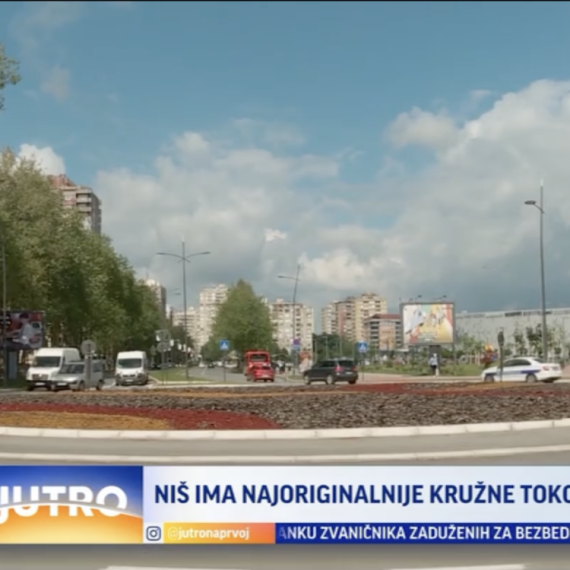
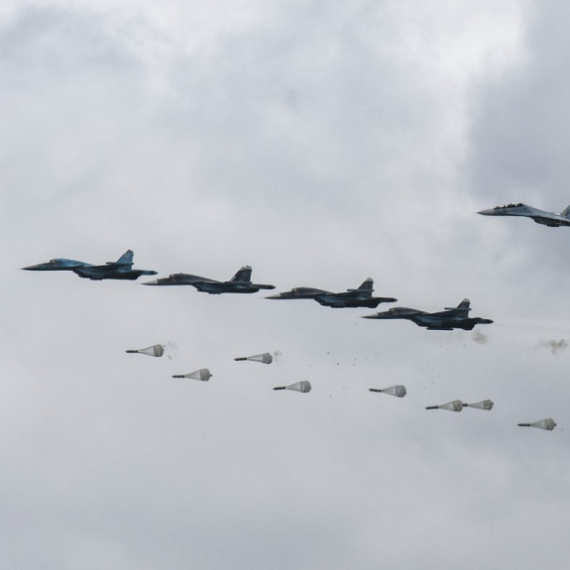



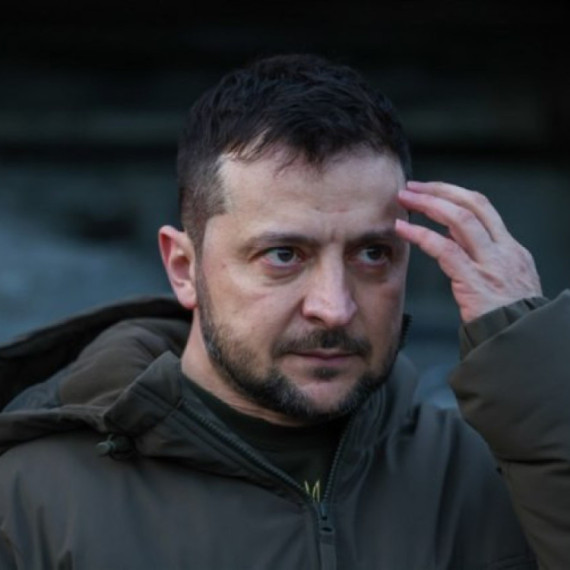
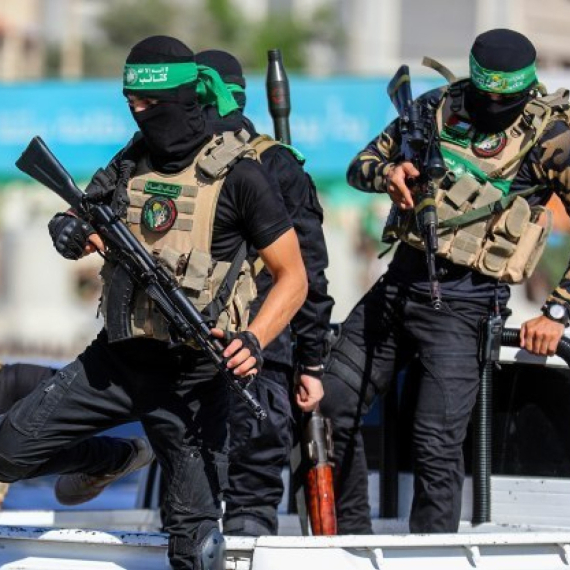
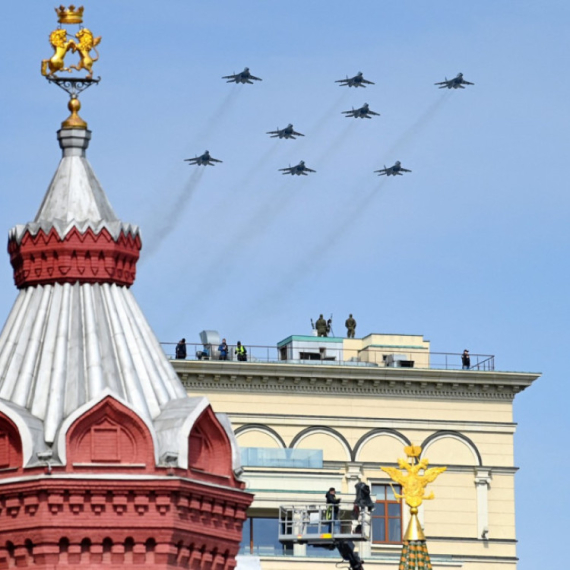





















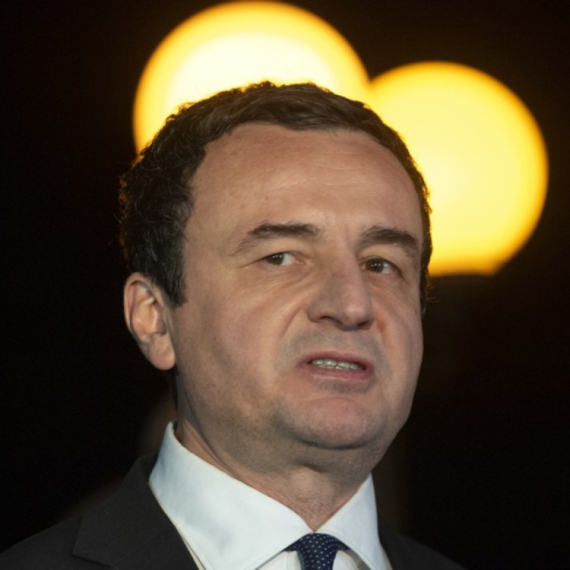






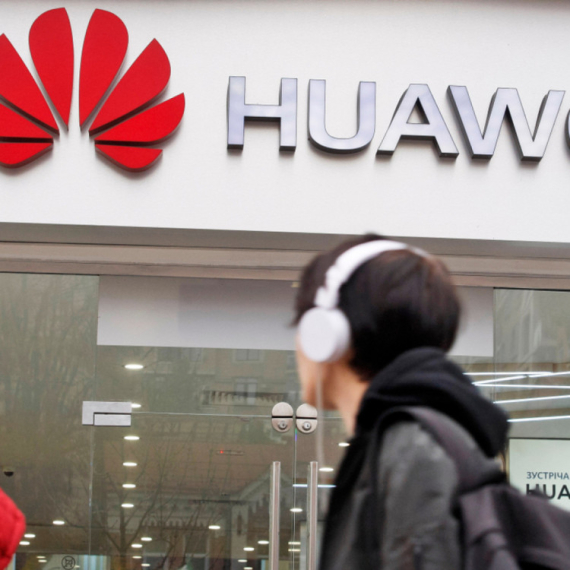








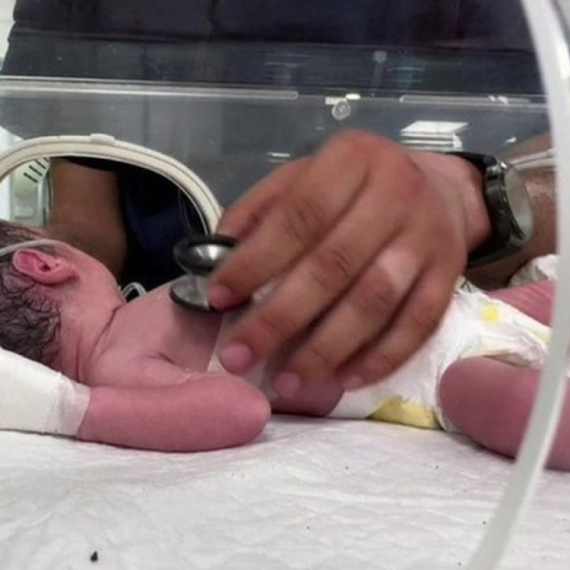


Komentari 0